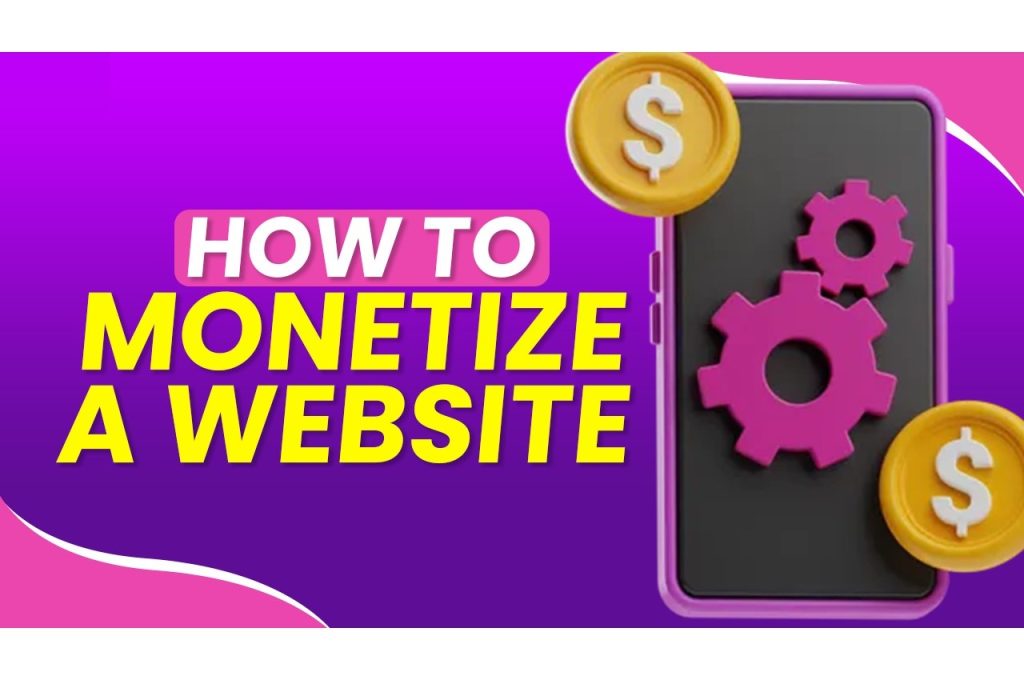
Affiliate Marketing: Partnering with Brands to Earn Commissions
Affiliate marketing is one of the most popular strategies for website owners looking to monetize their content. In this model, website owners partner with brands by promoting their products or services and earn a commission for each sale or lead generated through their referral links. The process is straightforward: after joining an affiliate program, you get unique links to embed in your website content. When your visitors click on these links and make a purchase, you earn a percentage of the sale.
To get started, website owners can join popular affiliate programs such as Amazon Associates, CJ Affiliate, or ShareASale. Each program provides access to a wide range of brands and products, giving you the flexibility to choose items relevant to your audience. Relevance is key in affiliate marketing, as promoting products that align with your audience’s interests increases the chances of conversions. For example, a tech website might promote gadgets, while a health blog could recommend fitness equipment or supplements. This strategy builds trust with readers and improves your earnings.
Incorporating affiliate marketing into your monetization strategy can provide a steady income stream. The model is performance-based, meaning you only earn when a conversion happens, making it a low-risk option. Understanding how to monetize a website through affiliate marketing requires consistent traffic, quality content, and careful selection of affiliate products. With the right approach, website owners can maximize their earnings while offering value to their audience.
Display Advertising: Generating Revenue with Ad Networks
Display advertising offers a simple way to generate passive income by placing ads on your website. Ad networks, like Google AdSense, allow website owners to display relevant ads and get paid based on impressions or clicks. The more traffic your website generates, the higher the revenue potential. AdSense is popular because it automatically matches ads to your content, providing a seamless experience for visitors while earning income.
After signing up with an ad network, like AdSense, you insert ad code into your website. The network delivers ads, which can be text, image, or video-based. Revenue typically comes through two models: Cost-Per-Click (CPC), where you earn when visitors click on ads, and Cost-Per-Thousand Impressions (CPM), where you’re paid based on how often ads are shown. For websites with substantial traffic, CPM is appealing since it doesn’t require visitors to interact with the ads.
Incorporating display advertising into your strategy on how to monetize a website is ideal for passive income. It requires minimal maintenance once ads are live. However, your success depends on traffic volume and engagement. As your site grows, testing different ad placements and networks can optimize earnings, making display advertising a reliable revenue stream.
Selling Digital Products or Services
Selling digital products or services is a highly effective way to monetize a website. Digital products, such as eBooks, online courses, or premium content, provide a scalable revenue stream without the overhead costs associated with physical products. Website owners can create valuable content tailored to their audience and offer it directly through their platforms. For example, an eBook filled with niche expertise, like marketing strategies or fitness tips, can attract buyers interested in gaining specialized knowledge.
Creating online courses is another lucrative way to monetize. With platforms like Teachable or Udemy, you can build and host courses that teach valuable skills. These platforms handle payment processing and course delivery, making it easier for you to focus on content creation. Whether it’s photography, coding, or business coaching, digital courses allow you to reach a broad audience and generate consistent income.
Offering premium content on your website, such as exclusive articles, webinars, or downloadable resources, is also an excellent way to monetize. Subscriptions or one-time purchases for premium content create a membership model that ensures recurring income. Understanding how to monetize a website through digital products involves creating high-quality, targeted content that delivers real value to your audience. By leveraging your expertise and providing digital products, you can build a profitable and sustainable business.
Sponsored Content and Paid Reviews
Sponsored content and paid reviews provide a direct revenue stream by allowing businesses to publish promotional articles or product reviews on your website. In this model, companies pay for exposure to your audience, leveraging your platform to boost their brand visibility. For website owners, this is an effective way to generate income, especially if their site has a niche audience that aligns with the advertiser’s target market. By offering sponsored content opportunities, you can collaborate with brands to create posts that provide value to your readers while driving revenue.
Paid reviews work similarly, where businesses compensate you for writing or featuring reviews of their products or services. This type of content is particularly beneficial for websites that focus on product comparisons, tech gadgets, or consumer goods. However, transparency is essential. Disclosing that the content is sponsored or the review is paid for builds trust with your audience and adheres to legal guidelines set by authorities like the Federal Trade Commission (FTC) in the U.S. Disclosed partnerships can still resonate with your audience if the content remains relevant and authentic.
Incorporating sponsored content and paid reviews into your monetization strategy is an excellent way to maximize your earning potential. To succeed with this method on how to monetize a website, it’s crucial to maintain a balance between sponsored posts and organic content, ensuring you continue providing genuine value to your readers.
Subscription Models: Offering Premium Content
Offering a subscription-based model for exclusive or premium content is an effective way to generate consistent, recurring revenue. This model allows website owners to provide valuable content, such as in-depth articles, exclusive tutorials, or member-only resources, to paying subscribers. For businesses exploring how to monetize a website, a subscription model provides a steady income stream, as users pay a monthly or annual fee to access premium content. This setup benefits both parties, with subscribers gaining access to specialized content while businesses enjoy predictable revenue.
The key to success in a subscription-based model is providing high-quality, exclusive content that cannot be easily found elsewhere. Websites offering premium research reports, industry insights, or personalized advice often find success with this approach. Platforms like Patreon and Substack have made it easier for content creators to offer paid memberships. In return, members gain access to behind-the-scenes content, early releases, or downloadable resources, depending on the niche and audience preferences.
Another advantage of subscription models is the ability to build a loyal community. Subscribers tend to be more engaged, as they have made an investment in the content. This engagement can lead to increased retention rates and more opportunities to upsell additional services or products. As you learn how to monetize a website, implementing a subscription model can create a sustainable revenue stream by continually providing value to your audience while maintaining a strong customer relationship.
E-Commerce Integration: Selling Physical Products
Integrating an online store with a website is a powerful way to sell physical products and convert site traffic into paying customers. By adding e-commerce functionality, businesses can showcase and sell products directly to their audience, streamlining the buying process. Popular platforms like Shopify, WooCommerce, and BigCommerce make it easy to integrate e-commerce into existing websites, enabling businesses to offer seamless shopping experiences. For those learning how to monetize a website, selling physical products can turn visitor engagement into tangible sales, creating a direct revenue stream.
With an online store, customers can browse products, make purchases, and track orders all within the website’s ecosystem. E-commerce integration also allows businesses to leverage their existing web traffic by adding call-to-action buttons, promoting new arrivals, and offering exclusive deals to site visitors. Additionally, companies can utilize marketing tools, such as abandoned cart recovery and upselling, to maximize sales opportunities. By pairing a strong content strategy with e-commerce integration, businesses can attract more visitors and increase the likelihood of conversions.
Furthermore, integrating an online store offers the opportunity to build a brand identity and foster customer loyalty. Offering a personalized shopping experience, excellent customer service, and easy-to-use checkout processes enhances customer satisfaction. This approach to how to monetize a website allows businesses to grow their customer base while generating consistent revenue from physical product sales.
Conclusion
In conclusion, there are numerous strategies available when learning how to monetize a website. Affiliate marketing, display advertising, and selling digital products offer unique opportunities to generate website revenue. Success depends on understanding your audience and selecting monetization methods that align with your content. Offering valuable content and building strong relationships with visitors can help turn traffic into sustainable income. Additionally, continually optimizing your strategy will ensure long-term success in monetizing your site. Each approach contributes to creating a reliable revenue stream, helping website owners grow their business effectively. Experimenting with different techniques will help find the most effective ways to grow your site’s earning potential.


